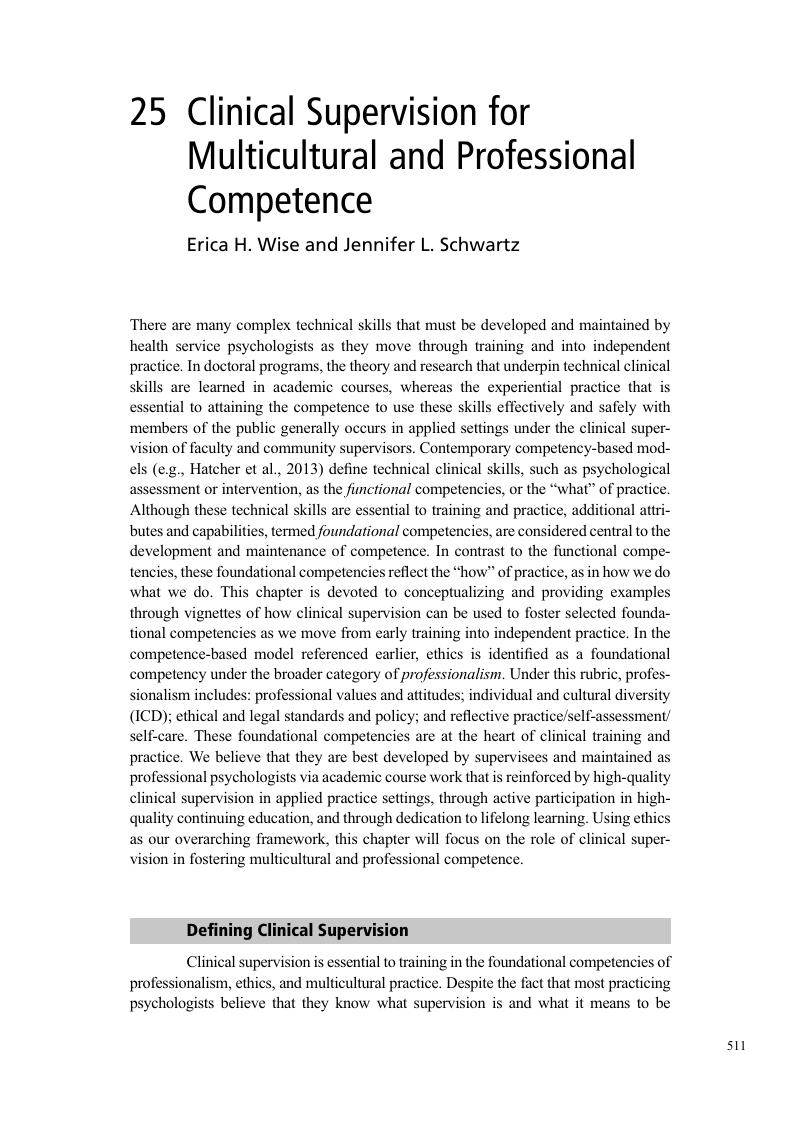Book contents
- The Cambridge Handbook of Applied Psychological Ethics
- The Cambridge Handbook of Applied Psychological Ethics
- Copyright page
- Dedication
- Contents
- Contributors
- Preface
- Acknowledgments
- Section I Ethical Issues in Specific Settings and Challenging Populations
- Section II Ethical Issues in Working with Diverse Populations
- Section III Legal, Research, and Organizational Issues
- 21 Major Legal Cases That Have Influenced Mental Health Ethics
- 22 Ethical Considerations in Forensic Evaluations in Family Court
- 23 Ethical Issues in Online Research
- 24 Ethical Issues in International Research
- 25 Clinical Supervision for Multicultural and Professional Competence
- 26 Disciplinary Supervision: Ethical Challenges for Supervisors
- 27 Ethical Issues in Psychological Consultation
- Section IV Emerging Ethical Issues in Professional Practice and Next Steps
- Index
- References
25 - Clinical Supervision for Multicultural and Professional Competence
from Section III - Legal, Research, and Organizational Issues
Published online by Cambridge University Press: 14 February 2018
- The Cambridge Handbook of Applied Psychological Ethics
- The Cambridge Handbook of Applied Psychological Ethics
- Copyright page
- Dedication
- Contents
- Contributors
- Preface
- Acknowledgments
- Section I Ethical Issues in Specific Settings and Challenging Populations
- Section II Ethical Issues in Working with Diverse Populations
- Section III Legal, Research, and Organizational Issues
- 21 Major Legal Cases That Have Influenced Mental Health Ethics
- 22 Ethical Considerations in Forensic Evaluations in Family Court
- 23 Ethical Issues in Online Research
- 24 Ethical Issues in International Research
- 25 Clinical Supervision for Multicultural and Professional Competence
- 26 Disciplinary Supervision: Ethical Challenges for Supervisors
- 27 Ethical Issues in Psychological Consultation
- Section IV Emerging Ethical Issues in Professional Practice and Next Steps
- Index
- References
Summary

- Type
- Chapter
- Information
- The Cambridge Handbook of Applied Psychological Ethics , pp. 511 - 530Publisher: Cambridge University PressPrint publication year: 2018



